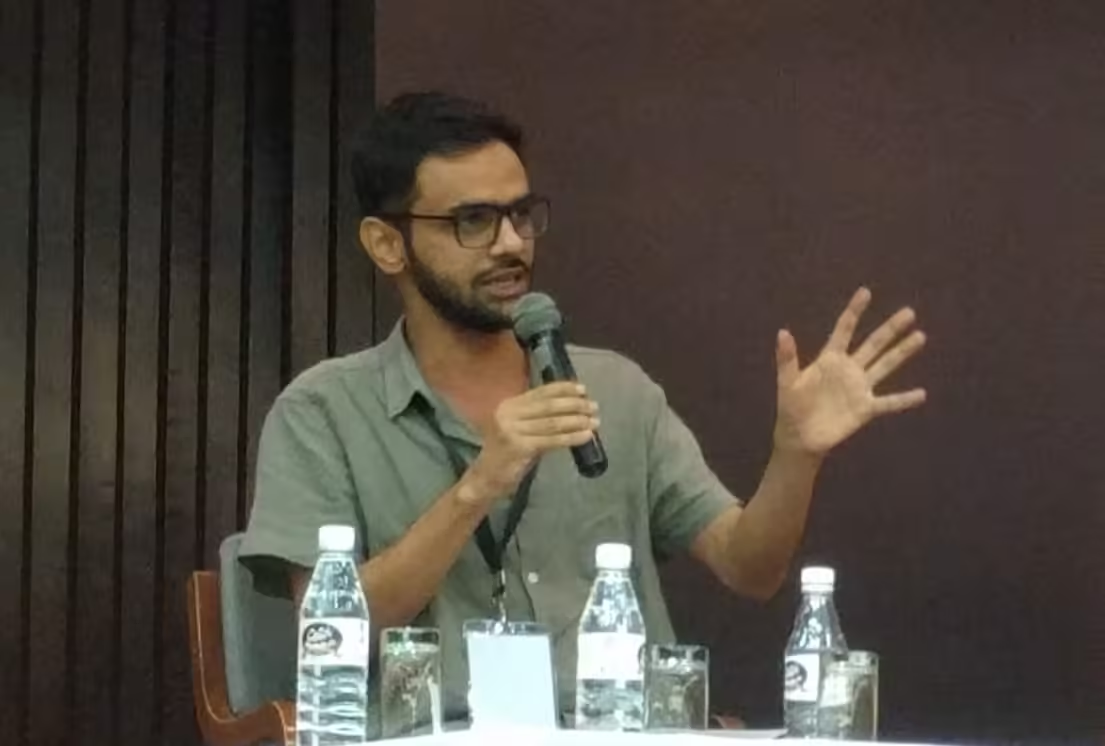Umar Khalid completes 4 years in Jail without bail or trial under UAPA Act. Social media trends happened about it after a documentary by BBC resurfaced on social media amid supreme court decision on giving bail to Arvind Kejriwal by saying, “Bail is the rule, Jail is the exception.”
Who is Umar Khalid?
Umar Khalid, a former student activist from Jawaharlal Nehru University (JNU), made headlines for his involvement in organizing a protest against the 2013 hanging of a Kashmiri man. The event led to sedition charges being filed against him and four other students. Once a passionate voice for activism, Umar Khalid has been imprisoned for over four years, facing charges under the Unlawful Activities (Prevention) Act (UAPA) without bail or trial.
What Happened in 2020?
Again in September 2020, Umar Khalid was arrested on charges of being the mastermind of the violence that broke out in Delhi and forced 53 casualties, mostly Muslims. These riots occurred at a time there were demonstrations against the Citizenship Amendment Act (CAA) that was deemed to have discrimination on the basis of religion. Since his arrest, a vulnerable and fragile young man like Khalid has, therefore, been subjected to legal confinement in the pretext of security and terrorism threats where this year alone, he has been denied bail repeatedly and remains detained, albeit waiting to be produced in court as the trial has not commenced yet.
The UAPA and Its Impact on Khalid’s Case
Umar Khalid is charged under UAPA, a stringent anti-terrorism law under which getting bail is almost impossible for anyone. One of the two cases has been dropped while the other is still ongoing with no information on the charges filed on him in court. The trial of Khalid continues to be delayed and this is compounded by lack of lawyers and constant change of bench in the case.
Khalid’s defense lawyer, Kapil Sibal has said he is confident of making a counter to the police claims, which he said would take him 20 minutes to deconstruct. However, Khalid is still in jail, the next hearing is set for January 24, where the judge claimed the trial process will start.
Life Behind Bars: Khalid’s Routine in Prison
Khalid spends his days in Tihar Jail reading extensively, writing petitions for fellow inmates, and watching cricket. His intellectual pursuits continue as he works on a prison diary, which has already attracted interest from publishers. His family connects with him via 20-minute video calls weekly, and his friends can visit him for brief 30-minute sessions.
For a short time though, Khalid was released on bond for one week to attend his sister’s wedding. As much as this is the case, he continues to live a dull and restricted life in prison. Living in the ward which includes only convicts, a man starts to think why is he with the murderers and, thus, discussing it with his partner for a long time, Banojyotsna Lahiri.
Books and Solitude: A Coping Mechanism
ooks appear as the only source of comfort that is available to Khalid in his captivity. Lahiri recently brought him six new titles, for instance Paul Lynch’s Prophet Song, and William Styron’s Sophie’s Choice. Khalid has been said to have read two hundred books before the prison and while in prison. His partner even has bought him book shelves, where he shelves the books he sends back.
What’s Next for Khalid?
While Khalid continues to fight his case, the legal process has been sluggish. His family and supporters are pushing for a fair and swift trial, hoping the judiciary will finally take steps to bring his ordeal to a close. Until then, Khalid remains one of many caught in the complex web of India’s legal system, awaiting justice.
In This Article-
For the latest news and top of the line assessment of technology, politics, education, sports, follow News To Your Home on X, Facebook, Whatsapp, Instagram

